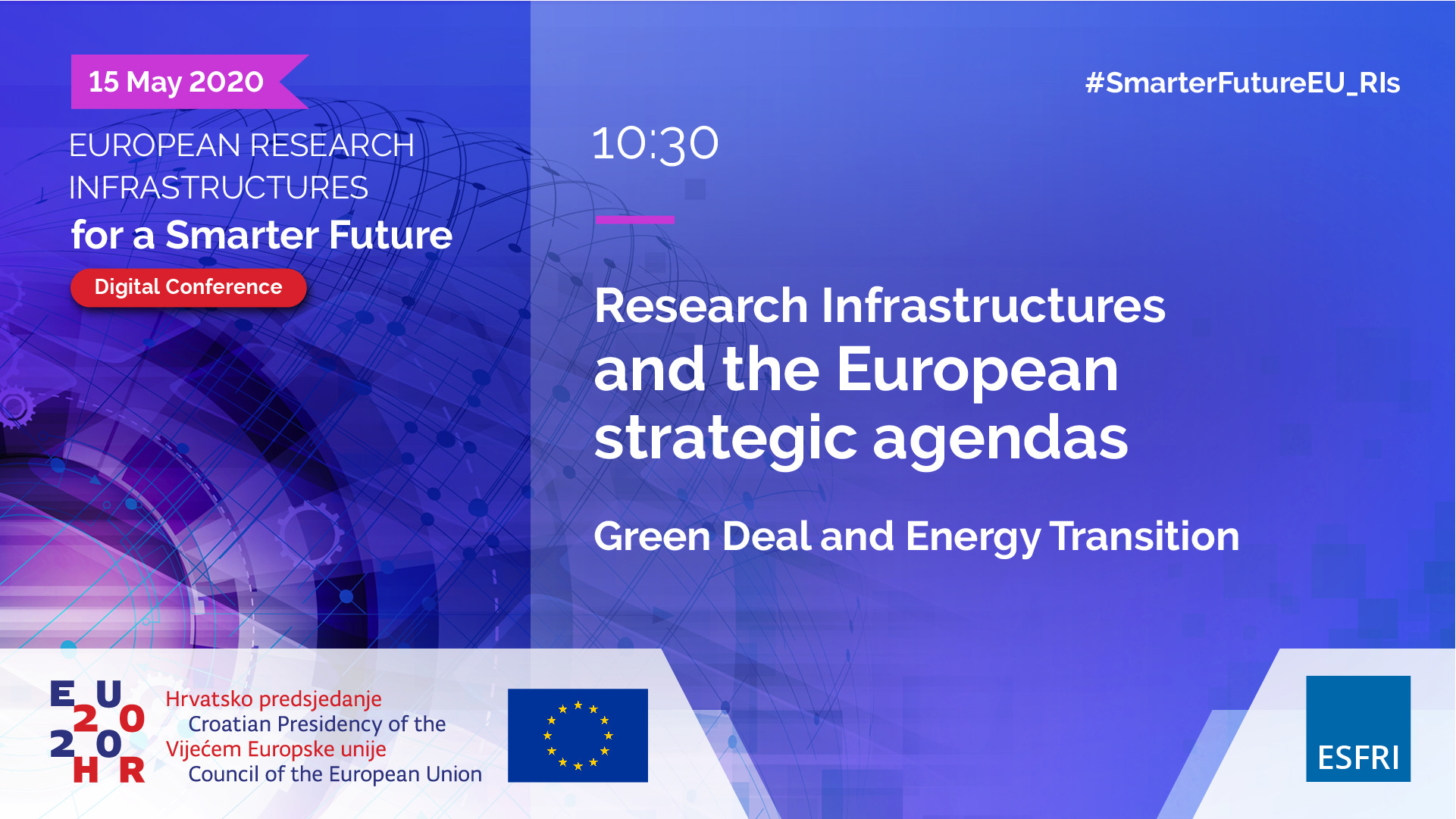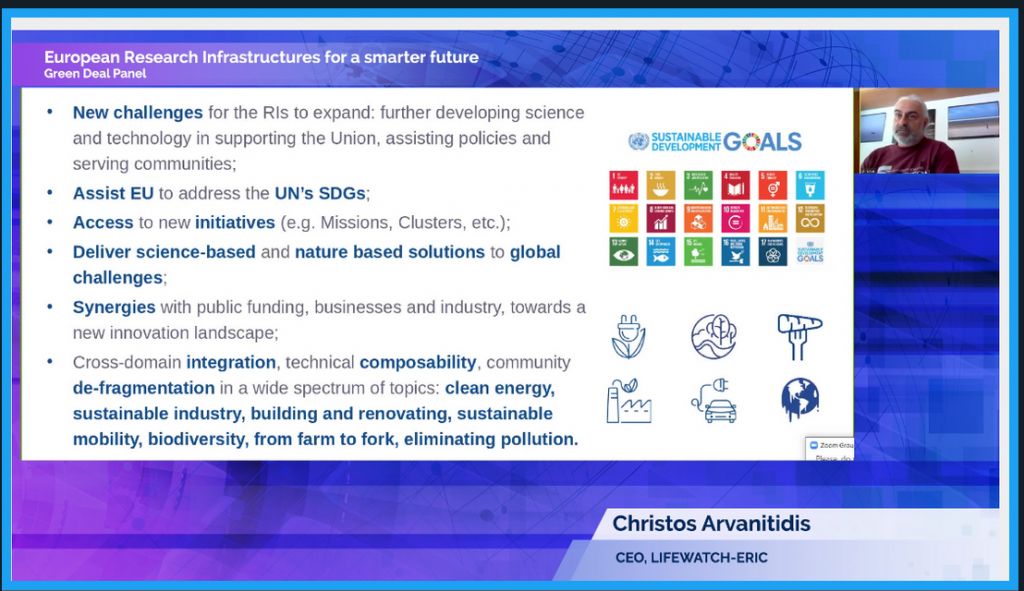
When the ‘European Research Infrastructures for a smarter future’ conference originally planned for 19-20 March in Zagreb by the Croatian Ministry of Science and Education, had to be cancelled because of public health concerns over the COVID-19 pandemic, a digital conference sprang up to take its place. Held online on Friday 15 May, 2020, the international event attracted representatives of Research Infrastructures and policy makers from all over Europe.
LifeWatch ERIC CEO Christos Arvanitidis featured as the first contributor to the morning panel on ‘Research Infrastructures and the European strategic agendas – Green Deal and Energy Transition’. Research Infrastructures, he argued, are organically linked to the European Green Deal Roadmap objectives, as they are tools for science offering the ideal environment to boost integration, community de-fragmentation, and innovation and growth. This, together with cross-domain integration, is of a key relevance on the road towards cleaner energy, more sustainable industry and mobility, reducing pollution and preserving biodiversity. Disruptive technologies also play a pivotal role in addressing the above goals. LifeWatch ERIC, for instance, offers blockchain technology for linking and managing open access data (LifeBlock) and develops the technical layer for the composability of its web services (LifeWatch ERIC Tesseract) towards reproducible analytics. Both technologies play an instrumental role in advancing science and in breaking current barriers between disciplines.

“Research Infrastructures will be critical in assisting the European Union to deliver on commitments to the United Nations’ Sustainable Development Goals, and deliver science based and nature based solutions to global challenges” he said. “The challenges we are facing are at the same time scientific, technical, societal, cultural, therefore further progress will depend on breaking through traditional barriers and effecting a change in our culture. Synergies at national and regional levels, with industry and business, will be better able to capitalise on this synthetic knowledge, as has been demonstrated in Andalusia, with the ERDF recources”.
The panel on The Green Deal and Energy Transition, was moderated by Inmaculada Figueroa, Vice Deputy Director General for the Internationalisation of Science and Innovation, Ministry of Science and Innovation, Spain and ESFRI Vice-Chair, and also featured interventions from Sverre Quale, Director of ECCSEL ERIC; Tonci Tadic, Head of the Croatian Fusion Unit at the Ruder Boškovič Institute; and Jana Kolar, Executive Director of CERIC-ERIC. Click here for details of the ESFRI White Paper ‘Making Science Happen’.
The conference continued touching other key topics for Research Infrastructures their contribution for Regional Development and in the fight against COVID-19, presenting ESFRI White Paper ‘Making Science Happen – a new ambition for Research Infrastructures in the European Research Area’, leading to the policy panel European Research Infrastructures for a smarter future.
Presentation
Christos Arvanitidis, Juan Miguel González-Aranda, Alberto Basset & Peter Van Tienderen, “Opportunities the European Green Deal and Energy Union provide for RIs”

